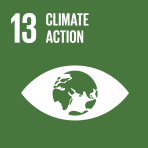Interconnected Disaster Risks 2025
Turning Over a New Leaf

Abstract
Climate change is intensifying, yet fossil fuel use and emissions are still reaching new heights. Species are going extinct at unprecedented rates, yet we continue to destroy ecosystems. More than two billion tonnes of household waste are produced each year and cause harm globally, yet the amount is projected to double by 2050. Despite decades of warnings by scientists, new negative extremes make the news nearly every day. Scientists have also told us what needs to change: Stop using fossil fuels. Protect and restore ecosystems. Live sustainably. Nevertheless, we are making fairly little progress towards such goals. This begs the question, if we know what we need to do, why aren’t we doing it? Previous editions of the Interconnected Disaster Risks report have analysed how the disasters we see are interconnected, and what risk tipping points we are going to reach if humanity continues to weaken the systems we all depend on. This year’s edition seeks to pick up where the previous editions left off by asking the central question on many people’s minds: how do we change course?


